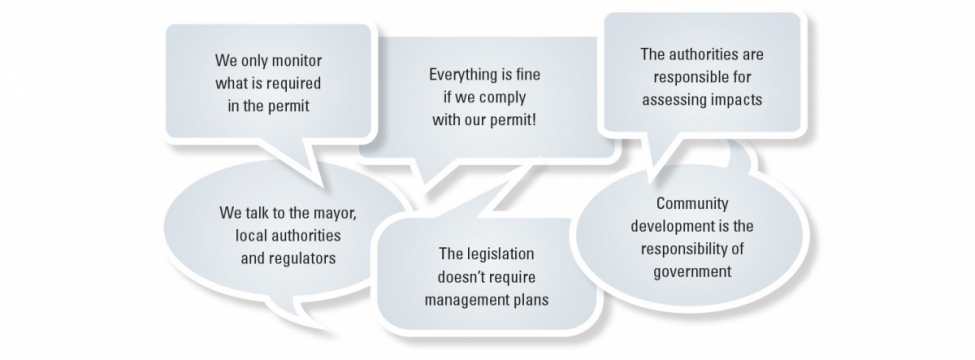Regulators are not omnipotent! Many of the mining operations SRK visits are focused solely on confirming compliance with regulatory requirements. For example, statements from audited operational sites in Europe and central Asia. These jurisdictions generally have long histories of strict, robust regulation. Both mining companies and surrounding communities therefore rely on regulators to establish what is required for management and monitoring, and to confirm compliance. This approach has limitations.
First, the actual effects on the surrounding communities and environment are often not adequately characterised:
- Takes place at sites specified by the authority and this may not reflect the greatest risk of pollution or presence of vulnerable receptors;
- Includes only stipulated parameters and so elements that may be naturally elevated in the environment and/or have the potential to harm receptors are not captured (quality control/assurance is also limited);
- Focuses on outputs (such as quality/volume of emissions or, in the case of social, quantum spent on community projects) rather than the negative or positive consequences on the receptor; and
- Looks at day to day compliance rather than long term trends that might identify potential problems early.
Unless the company is proactively collecting and interpreting additional data, it may have limited defence against claims other than adherence to its permits and/or legislation.
Second, interpreting, applying and enforcing legislation and permits between and within the regulators can vary, leaving the company with conflicting requirements. This is exacerbated where the capacity of regulators is stretched or savvy stakeholders are influencing government players.
Third, regulatory authorities may focus on emotive or easy to manage areas (such as waste management) rather than the more difficult ‘material’ issues (such as groundwater contamination or critical habitat). This can result in lack of regulation in certain areas or over control in others.
So, what is the solution? Adhere to regulatory requirements or, if these are not appropriate, re-negotiate with the relevant authorities. Good international industry practice requires this. However, SRK Consulting suggests companies go beyond strict regulatory requirements by implementing a pro-active management system. In other words, the system should provide the tools to actively understand a company’s effects, how to manage them and how operations can continuously improve. A company taking ownership of its impacts and showing how these are proactively managed is in a stronger position when it comes to satisfying regulators, local communities and shareholders. This makes good business sense; it minimises environmental and social risks to the continued operation adding value to the mining asset. Money is saved in the long run and operational effectiveness is improved in the short term.

